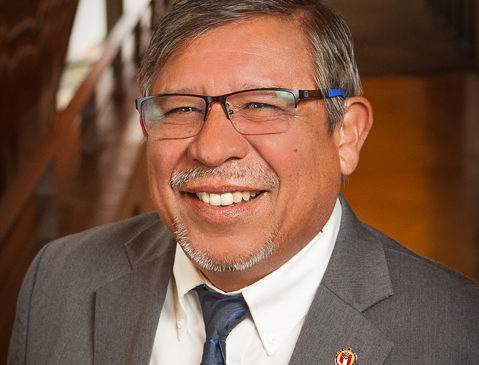Renteria looks at 2018 and beyond
Wednesday, December 26, 2018 by
Jo Clifton As he starts his second four-year term at City Hall, District 3 Council Member Pio Renteria says he plans to concentrate on affordable housing in the coming year, just as he did in 2018 and the three previous years.
Fresh off a runoff victory against his sister, Susana Almanza, Renteria told the Austin Monitor he wasn’t happy about running against her again. But now that he’s won, Renteria is taking the attitude, “It’s over with, just one of those things.”
He won with 64 percent of the vote, compared to Almanza’s 36 percent in the Dec. 11 runoff.
Renteria has been very pleased with the Council’s major hire of the past year, City Manager Spencer Cronk. He said Cronk is doing more to get to know city employees than his predecessor ever did; for example, he attended the city of Austin’s employee Olympics. Renteria also praised Cronk for his willingness to listen, a trait other Council members have noted.
Renteria also said he was “really satisfied with the police contract. The biggest concern that I have is the upcoming (legislative) session,” since the governor has indicated that he would try again to limit municipalities’ authority to increase taxes. Because of that, Renteria said it was important that the police understood they could lose some of the raise they had negotiated in the contract. “Now they have some skin in the game,” he said.
He told the Monitor he is working on different aspects of affordable housing, such as housing built using tax credits and Section 8 housing. Recently staff members from the Cesar Chavez Foundation in the Govalle neighborhood came to ask for his assistance because they were having difficulties navigating the city’s development process.
The group must build its housing within a two-year time frame or lose its qualification for tax credits, he said. If that were to happen, the foundation could no longer afford to build affordable housing and would have to sell it on the open market at market rates. That is the opposite of what Renteria and other Council members want for the property.
“Development has to pay for itself,” Renteria said, but the city needs to make it easier for nonprofits to build affordable housing.
Renteria and his colleagues, Council members Greg Casar and Delia Garza, campaigned for the $250 million Proposition A, which will provide the city with housing money. Of that amount, $100 million will be used to acquire land for future affordable housing, $94 million in rental assistance projects, $28 million for home repair programs for low-income residents, and $28 million to help low-income residents become homeowners.
“Basically right now I’m focusing on doing as many affordable units as possible for the workforce,” Renteria said.
He is also focused on creating the “right to return” in East Austin, a program that would be modeled after a Portland program that helps people who have been displaced because of gentrification return to their historic neighborhoods. He noted that renters are the ones who are hurt the most by the gentrification places such as East Austin are experiencing.
Renteria is particularly proud of changes going on at Chalmers Courts, the oldest low-income apartment complex in the country. The complex, which was built in 1939, has deteriorated significantly, but when the property is completely refurbished, it will have 400 “deeply affordable” units to replace the original 158 units. At the groundbreaking for the renovation, Renteria told a local reporter, “I’ve been here 68 years in Austin and to see a project like this, finally, it fulfilled my dreams and my goal working as a housing advocate for years and years – to see this accomplished, it’s the greatest thing that ever happened to us.”
He generally votes for zoning changes, especially when the change will facilitate more housing, but sometimes Renteria still has to say no. He was the only Council member to vote against a zoning change for one high-intensity project in District 3 when it first came to Council in August. However, when it returned to Council on Oct. 4, he seconded Council Member Leslie Pool’s motion to postpone the item indefinitely.
Renteria also said it is important to him that more people use public transportation, noting that only 8 percent of Austin residents rode the bus last year. He noted that the Capital Metro board recently voted to allow students to ride for free in an effort to get young people accustomed to taking the bus, with the hope that they will continue to do so once they graduate.
Photo courtesy of the city of Austin.
The Austin Monitor’s work is made possible by donations from the community. Though our reporting covers donors from time to time, we are careful to keep business and editorial efforts separate while maintaining transparency. A complete list of donors is available here, and our code of ethics is explained here.
You're a community leader
And we’re honored you look to us for serious, in-depth news. You know a strong community needs local and dedicated watchdog reporting. We’re here for you and that won’t change. Now will you take the powerful next step and support our nonprofit news organization?











